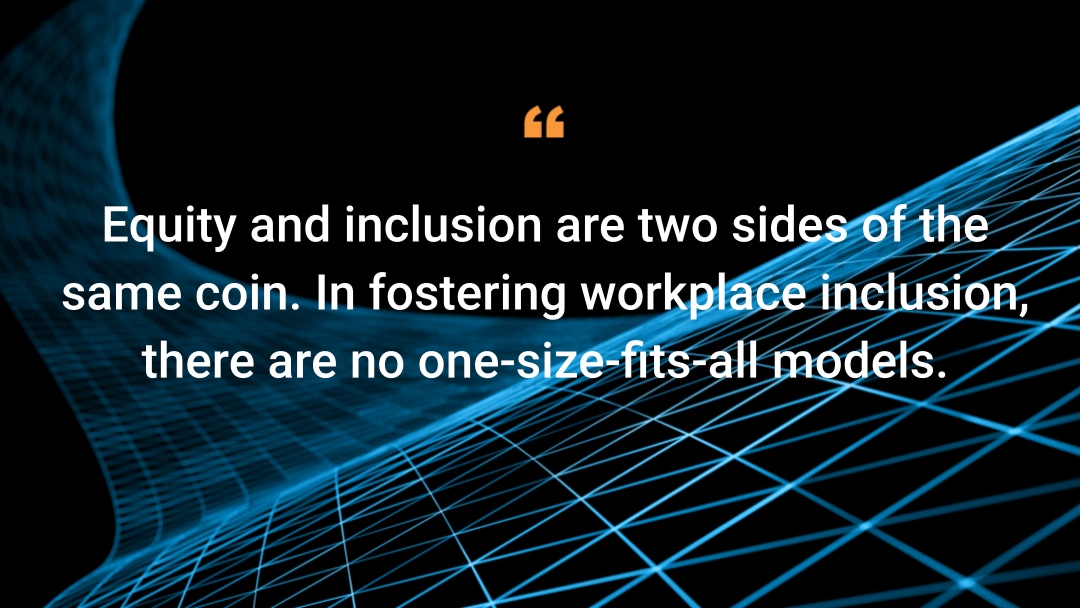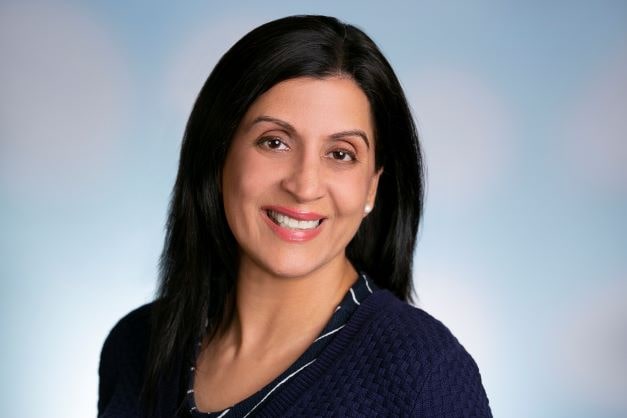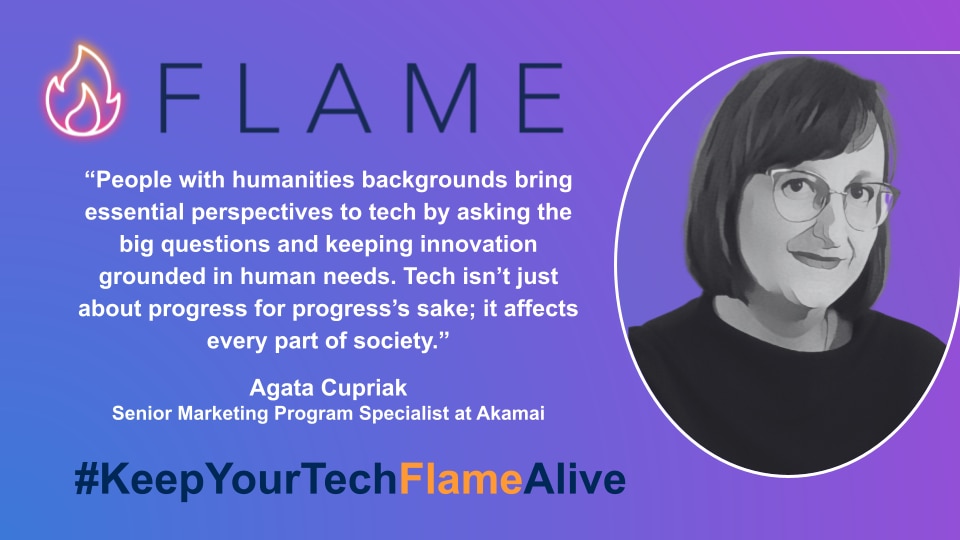Advocating for Inclusion in Tech

In this “Women in Tech” blog series post, Vice President of Engineering for App & API Protection at Akamai Alka Malik shares how her role has helped her champion workplace inclusion for women in tech in her own innovative way.

The appeal of software engineering
For most students, college is a time to explore and choose from a variety of different interests and future careers. Reflecting on her own college-bound experience, however, Alka Malik notes, "The only option that was really talked about at home revolved around the field of medicine."
So, of course, she considered pursuing a medical degree program and started her journey toward the medical field, but ultimately Alka decided to pursue software engineering. Her inclination to pursue engineering instead of medicine had to do with its unique approach to creating something new and innovative.
“What particularly resonate[d] with me in this domain is the ability, as a developer, to create something that didn’t exist or to look at solving a problem differently,” says Alka. “You are challenging yourself with non-repetitive tasks, and it is precisely these aspects that captivate my interest.”
Alka graduated from Boston University’s College of Engineering with a bachelor’s degree in electrical engineering and a master’s in computer engineering. During her professional tenure, she worked at Nortel Networks, CA Technologies, Dell Technologies, and at RSA Security before assuming her current role at Akamai.
Protecting applications and APIs
Motivated by a desire to explore diverse avenues for safeguarding applications and application programming interfaces (APIs), Alka sought to broaden her security expertise and contribute to the growth of application security, particularly as the dependency on applications usage has heightened for both individuals and organizations.
“I wanted to see how else you can protect applications and APIs. I really wanted to be part of it and help it grow further. So, when the Akamai opportunity came to me, I grabbed it.”
In her current position as Vice President of Engineering for App & API Protection, Alka is responsible for the development and execution of security product strategy. She leads a global engineering team, and under Alka’s purview is a team dedicated to development, quality assurance, and architecture of application security protection products.

Bring the customers in on the journey
Alka and her team create products that support Akamai customers’ success. “It's important to understand the rationale behind how architecture and engineering work and how it impacts the business,” says Alka.
She emphasizes the importance of aligning product design with tangible, measurable benefits for customers. “It is fundamentally important to listen to our customers, understand their evolving security needs, and be forward-thinking in terms of what capabilities would be most meaningful for those security needs,” says Alka, “while at the same time, maintaining market leadership and building and maintaining the trust that customers have in our products [and Akamai]."
Navigating challenges as a woman in tech
Women in tech face many challenges, from pay disparities to enduring stereotypes. Despite those obstacles, Alka advocates for women to reframe the female experience in tech and leverage their unique perspectives as a strength rather than a barrier: “Embrace being the only woman in the room.”
Reflecting on her own journey, Alka acknowledges the scarcity of women in fields like engineering, where unconscious biases often persist. She notes that young girls tend to shy away from pursuing technology even when they are good at math and science — so she encourages girls to pursue science, technology, engineering and math “because there's very few of us.”
“We come from the perspective that it's difficult being a woman in tech, especially as you move up the ladder. That's a pretty prevalent issue,” says Alka. “That needs to change.”
The advantages of being a woman in tech
As a woman in tech and a leader in the industry, Alka believes that diligent effort, combined with supportive guidance from leadership, plays a pivotal role in mitigating challenges. Her resilience in navigating such challenges serves as a testament to her belief in confronting obstacles head on and forging ahead.
“Women have been making a lot of valuable contributions across a variety of specializations and should be celebrated,” she says.
Alka contends that “by creating an environment where diverse voices can be heard not only addresses these biases, but can also position being a woman in tech as a distinct advantage.”
Create safe spaces for equitable participation
According to Alka, it is crucial to establish an inclusive workplace wherein every employee is at ease asking a question, regardless of its perceived complexity or simplicity. Creating such an environment adds value to individual input, without emphasizing one viewpoint over another; it encourages self-expression without fear of judgment and helps create a space in which every voice is heard and respected and every team member feels valued and appreciated.
“Encouraging and fostering an environment with more openness and transparency in communication within the team and across cross-functional teams has been well-received,” says Alka.
In fact, her team has specifically cited Alka’s open-door policy, approachability, and ability to provide guidance when needed as differentiators in their work dynamics. They’ve praised the collaborative, innovative, and supportive work culture that her leadership has enabled, and called out her positive attitude and “contagious enthusiasm” as a source of encouragement and inspiration.

The strength of a supportive network and a growth mindset
The key to successful inclusion is ongoing learning, curiosity, and openness to varying viewpoints. Alka participates in such environments as a leader — and a woman in tech: She co-chairs the Security Technology Group (STG) Women’s Security Forum and is also a part of the Executive Women's Network. Participating in such networks allows Alka to cultivate more inclusive environments for other women in tech. Says Alka, “Young women [in tech] bring more awareness [to the lack of inclusion in the field], but I think there's more that's needed.”
Alka believes that if you’re backed by a strong support system and you’re surrounded by individuals with mentor-like qualities — such as a collaborative mindset and a willingness to engage in open idea exchange — then formal mentorship isn’t mandatory.
“Diversity of thoughts should always be encouraged. You can talk to someone and get their unbiased opinions and views, and [they] help coach you and guide you,” she says. “Whether it's learning through interactions with individuals, formal courses, articles, or insightful TED talks, one should always keep learning.”
Reciprocity in mentorship
As a mentor, Alka prioritizes active listening and embraces opportunities to glean insights from others. She continues to challenge her own assumptions, while nurturing an atmosphere in which individuals feel comfortable and empowered to express their thoughts without fear of judgment.
“When I'm a mentor, I actually feel like I'm a mentee as well because I learn something along the way. A mentor–mentee relationship [becomes] an infinite loop: I'm learning a lot from them, and they are learning [from me].”
The intersection of equity and inclusion
Equity and inclusion are two sides of the same coin. In fostering workplace inclusion, there are no one-size-fits-all models; tailored solutions are essential for meeting each individual’s needs. Alka believes in the power of building a platform that establishes a sense of fairness.
“If you have a good leader, who recognizes you and your potential, that always helps. Having allies goes a long way and I have been fortunate to have them throughout my career,” says Alka. “I proactively go above and beyond to ensure that everyone feels seen, heard, and appreciated.”
Championing inclusion
To enhance collaboration, Alka consistently extends an invitation to participate in transparency, open communication, and active listening, while encouraging diverse perspectives, as ways to reinforce an inclusive culture.
Her steadfast approach to championing inclusion is to celebrate each individual’s unique contributions through AppSec-wide knowledge-sharing sessions and guilds, customer value demonstrations of new features, innovation timeouts and showcases, and commemorations of work anniversaries — to name a few. Alka is dedicated to fostering a cohesive and productive work environment in which each person’s voice holds significance.
“The world is a different place for everyone,” says Alka. “If we can give everyone a platform where they have the same footing — there is equity. That's really important. I try my best to provide that platform and make sure every voice is heard.”




